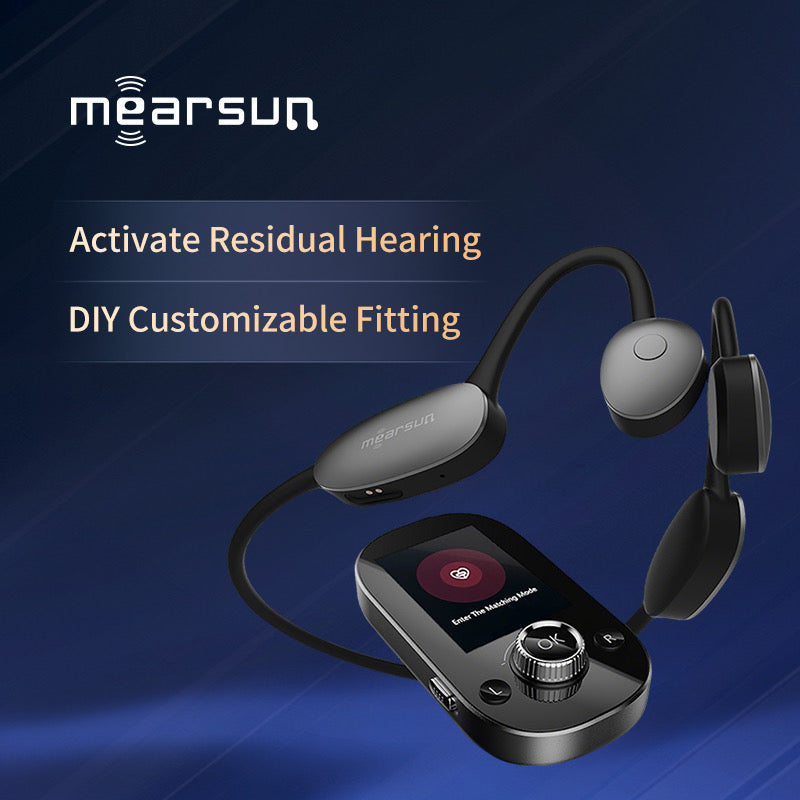Why Addressing Hearing Loss is About More Than Just Your Ears
For years, hearing aids were seen primarily as devices to improve auditory function. But groundbreaking research is revealing a much more significant story—one that connects hearing intervention to something far more critical: brain health and cognitive preservation.
The Startling Research Findings
Multiple studies, including landmark research from Johns Hopkins University and the Lancet Commission, have identified untreated hearing loss as the number one modifiable risk factor for dementia. The statistics are compelling:
-
Mild hearing loss doubles dementia risk
-
Moderate loss triples risk
-
Severe loss increases risk up to five times
But here's the hopeful finding: appropriate hearing aid use can reduce cognitive decline by up to 48% over 25 years, according to a 2023 study published in The Lancet Healthy Longevity.
How Hearing Loss Affects Your Brain
The connection isn't merely correlational—researchers have identified several mechanisms:
1. Cognitive Load
Your brain must work harder to decode incomplete sound signals, diverting resources from other cognitive functions like memory and executive function.
2. Brain Atrophy
When auditory regions don't receive adequate stimulation, the brain reorganizes. The temporal lobe (responsible for sound processing) can shrink, and other regions may compensate, disrupting normal brain function.
3. Social Isolation
Difficulty hearing often leads to withdrawal from social activities. Since social engagement is crucial for cognitive health, this isolation creates additional risk.
The Role of Modern Hearing Technology
This is where advanced hearing solutions like Mearsun bone conduction technology create meaningful impact beyond basic hearing assistance.
Why Technology Choice Matters
Not all hearing assistance provides equal cognitive benefit. The key lies in:
-
Natural sound processing that doesn't require excessive mental effort
-
Comfortable all-day wear to ensure consistent use
-
Environmental awareness to keep users engaged with their surroundings
Bone Conduction: A Brain-Friendly Approach
Mearsun's open-ear design offers particular advantages for cognitive health:
-
Reduces Mental Fatigue
By bypassing damaged areas and transmitting sound directly through bone vibration, the brain receives clearer signals with less processing effort. -
Maintains Spatial Awareness
Unlike traditional aids that block ear canals, our technology preserves natural environmental awareness—keeping users mentally engaged with their surroundings. -
Encourages Consistent Use
With lightweight, comfortable designs that don't cause ear canal irritation, users are more likely to wear them throughout their waking hours—maximizing auditory stimulation.
Practical Steps for Cognitive Protection
-
Get Regular Hearing Checks
Annual screenings after age 50 can detect changes early -
Address Hearing Loss Promptly
Early intervention provides the greatest cognitive protection -
Choose Technology Thoughtfully
Select devices that provide clear sound without excessive mental effort -
Stay Socially Active
Use your hearing technology consistently to maintain social connections
The Bigger Picture: Hearing Health as Brain Health
Viewing hearing aid use as cognitive protection represents a paradigm shift. It transforms the conversation from simply improving hearing to:
-
Preserving memory and mental sharpness
-
Maintaining independence longer
-
Reducing dementia risk factors
-
Enhancing overall quality of life
Your Questions Answered
How quickly does hearing intervention help cognitive function?
Studies show improvements in working memory and processing speed within 3-6 months of consistent hearing aid use.
Are bone conduction devices effective for cognitive protection?
Yes. The key factor is providing clear auditory input to the brain, which bone conduction technology achieves effectively—especially for those with conductive hearing issues or sensitivity to traditional aids.
What if I only have mild hearing loss?
Even mild loss increases cognitive risk. Early intervention provides the greatest protection.
Conclusion: An Investment in Your Future Self
The emerging research makes one thing clear: addressing hearing health isn't just about hearing better today—it's about preserving your cognitive future. By choosing technology that provides clear, comfortable sound with minimal mental effort, you're not just investing in better hearing, but in long-term brain health.


Share:
Is It Time for a Hearing Aid? Here’s How to Know
【Real Experience】Mearsun Bone Conduction Hearing Aid Review: Game-Changer for Hearing loss?